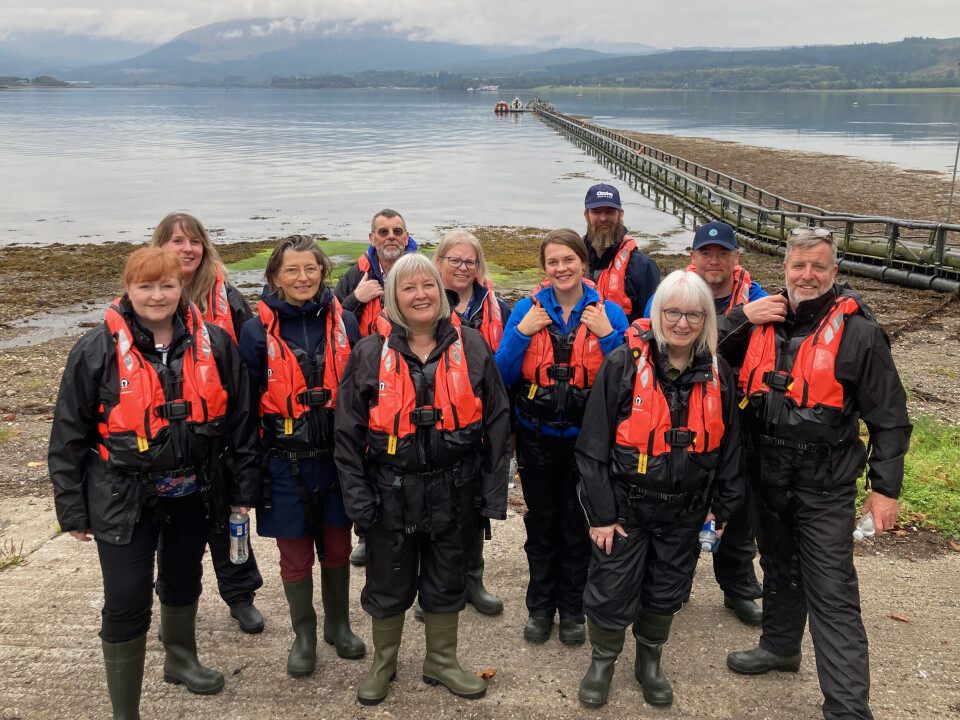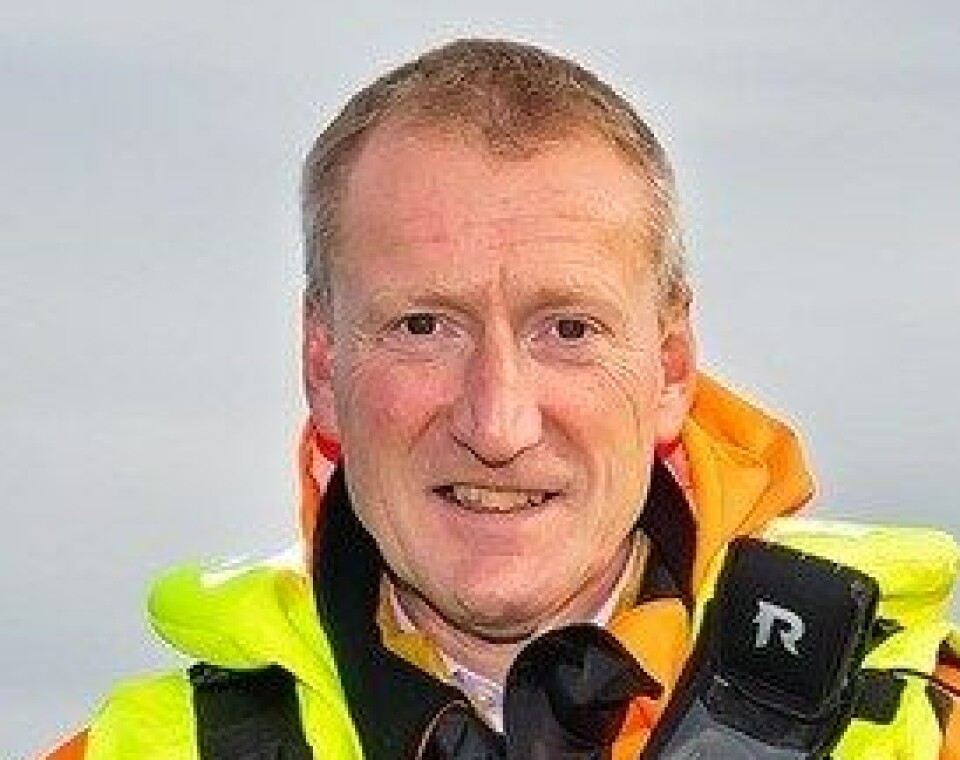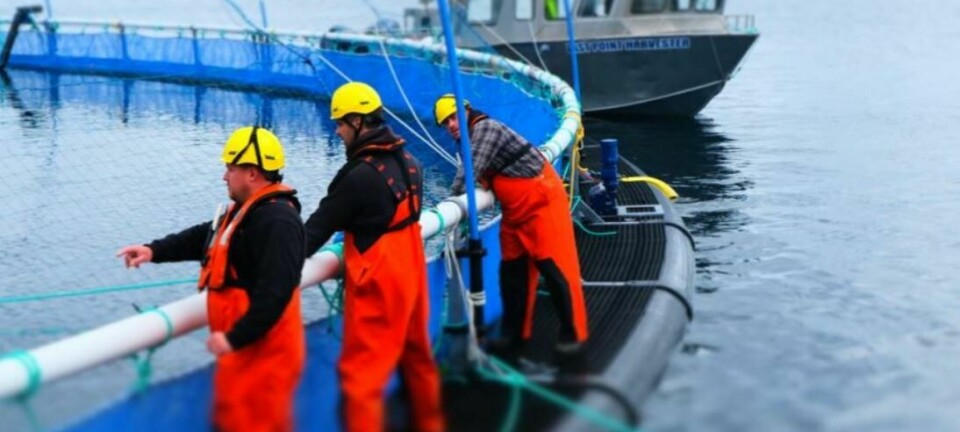
Salmon-probe MSPs visit fish farm
We hope the insights provided will help them to help us, says producer's veterinary chief
Members of the Scottish Parliament’s Rural Affairs and Islands Committee (RAIC) visited salmon producer Scottish Sea Farms today on a fact-finding tour as part of its ongoing inquiry into salmon farming.
Six MSPs assembled at SSF’s modern Barcaldine freshwater hatchery near Oban, meeting people from across the business, as well as representatives from sector body Salmon Scotland and other salmon producers due to appear before the committee in the sector evidence session on October 2.
The RAIC members – convener Finlay Carson, deputy convener Beatrice Wishart, Emma Harper, Rhoda Grant, Emma Roddick and Arianne Burgess – were then taken out to Dunstaffnage marine farm to see a fish farm up close.
No questions off-limits
SSF’s head of sustainability and development Anne Anderson, who co-hosted the visit along with head of veterinary services Ronnie Soutar, said the tour provided committee members with the opportunity to put questions to those working within the sector.
“The MSPs were able to talk to the people who are on the frontline of farming every day, observe the care and passion that goes into their work, and discover what salmon farming means to them and their families,” Anderson said in a press release.
“No questions were off-limits and hopefully we were able to address some of the misconceptions about the sector and build on the politicians’ understanding of a way of life that brings immense benefits to rural communities.”
Forming opinions
The RAIC is looking into the implementation of recommendations from a previous inquiry by its predecessor, the Rural Economy and Connectivity Committee (RECC), in 2018, and has so far heard from a range of interests, including NGOs, aquaculture scientists, regulators, and marine consenting and spatial planning experts.

Following the salmon sector’s appearance next week, the inquiry will hear from the Cabinet Secretary for Rural Affairs, Land Reform and Islands, Mairi Gougeon, on October 9. It will then publish its findings in due course.
Tavish Scott, chief executive of trade body Salmon Scotland said Scottish salmon was grown in the most sustainable way, and was an important contributor to Scotland’s economy and a vital part of the country’s coastal communities.
“We are grateful to MSPs from the Rural Affairs Committee for visiting a salmon farming company and providing the opportunity to challenge some of the misconceptions and show the reality of salmon farming," added Scott.
“We hope this visit will support the work of the committee and we look forward to appearing in front of the committee and answering their questions in a week’s time.”
Our sincere hope is that the insights provided will, in turn, help the committee to help us through their findings. We are hoping to see positive change from the inquiry, particularly regarding regulation
SSF veterinary chief Soutar said: “We welcomed the opportunity to let members see for themselves what [the reality of salmon farming] looks like and, therefore, form their own opinions as opposed to the various opinions they may have heard.
“As is usual with the many visitors we get, we hope they’ve
left with a better understanding and a much more positive impression of the
sector.
“Our sincere hope is that the insights provided will, in turn, help the committee to help us through their findings. Many of the issues that we faced in 2018 we still face today, so we are hoping to see positive change from the inquiry, particularly regarding regulation.”
Before visiting Scottish Sea Farms, the parliamentary delegation toured the Scottish Association for Marine Science (SAMS) at the Scottish Marine Institute and, on Sunday, they attended a community engagement event in Oban.





















































